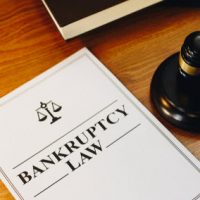Just Moved to Florida. Can I File for Bankruptcy?

People move all the time now for a variety of reasons. Maybe you or your spouse accepted a new job in Florida, or perhaps you are one of the state’s most recent retirees who have moved here to enjoy the sun in your golden years.
Whatever your reasons for coming to Florida, you might find yourself in financial distress and be considering bankruptcy. Read on for more information about what you can expect.
Can You File for Bankruptcy?
Yes. Bankruptcy is governed mostly by federal law. In particular, the 2005 Bankruptcy Abuse Prevention and Consumer Protection Act (BAPCPA) governs whether someone can apply for either a Chapter 7 or a Chapter 13 bankruptcy.
The good news is that there is no residency requirement to file. You can be a lifelong Florida resident or someone who arrived last weekend—regardless of how long you have lived here, you can file for bankruptcy provided you qualify.
For example, to qualify for a Chapter 7 liquidation, you must pass a means test, and there are two ways to do it:
- Your income is below the median in Florida for a family of your size. If it is, you automatically qualify.
- Compare your income to your debts. If you do not have enough disposable income, you will qualify. Meet with an attorney to review whether you can pass the means test using this alternate method.
Does Length of Residence Affect Bankruptcy at All?
Yes. Although you can file for bankruptcy, your length of time in Florida will impact how much property you can exempt from the trustee.
In a Chapter 7, the trustee can sell your non-exempt property to pay off your creditors. Every state has a list of property exemptions, meaning the trustee cannot seize and sell any exempt property. However, you cannot use Florida’s exemptions unless you have lived in the state for 730 days before the date you file for bankruptcy.
If you haven’t lived in Florida for this length of time, then you can use the exemptions for the state where you predominantly lived for the 180 days before the 730 days before you filed for bankruptcy. So look back 2.5 years to check where you were residing.
There is a simple reason for the 730-day rule. Florida has a very generous homestead allowance that will exempt the entire value of your home. Whether you have $100,000 or $5 million in equity, the bankruptcy trustee cannot touch your Florida home.
Because Florida’s homestead exemption is so generous, the federal government was worried that some people would quickly move to Florida, put all their money into a home, and exempt it that way. To prevent this from happening, BAPCPA requires that you live in the state for a certain length of time before filing if you hope to take full advantage of the homestead exemption.
New to Florida? Discuss Bankruptcy with a Plantation Bankruptcy Lawyer
Before filing for bankruptcy, you need to carefully consider what will happen to your assets. At Nowack & Olson, we fully analyze your situation so that there are no surprises. We can guide you to the best bankruptcy for your needs and help get you approved.
To schedule a free consultation with one of our bankruptcy attorneys in Plantation, please call 866-907-2970.
